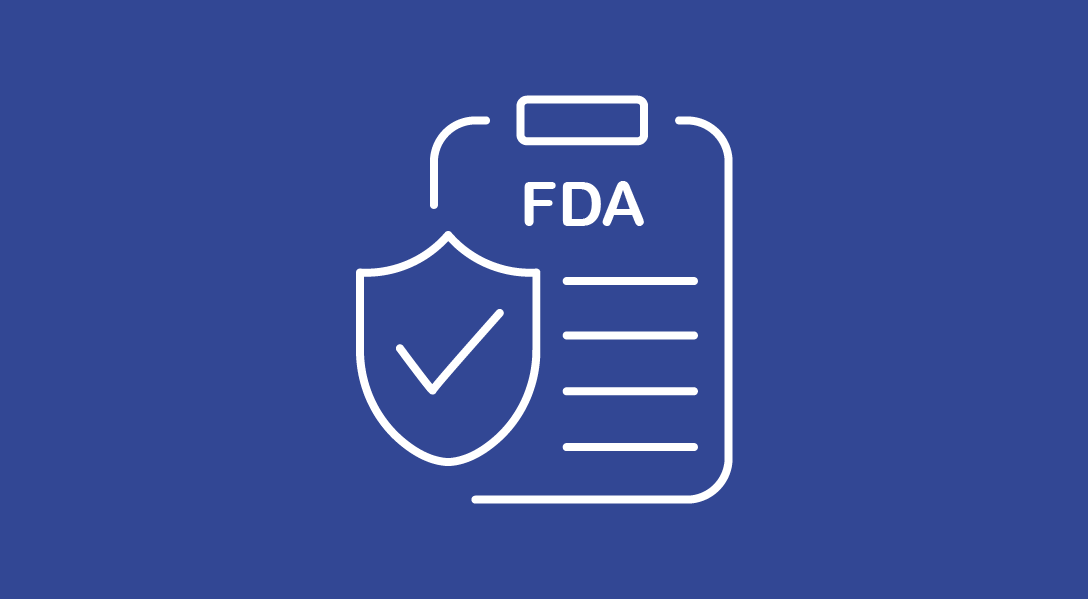Cosibelimab Approved by FDA for Metastatic, Locally Advanced Cutaneous Squamous Cell Carcinoma
An FDA approval was granted for cosibelimab-ipdl for the treatment of patients with locally advanced or metastatic cutaneous squamous cell carcinoma.
The FDA granted approval for cosibelimab-ipdl (Unloxcyt) for certain patients with metastatic or locally advanced cutaneous squamous cell carcinoma.

Cosibelimab-ipdl (Unloxcyt) has been granted FDA approval to treat adult patients with metastatic or locally advanced cutaneous squamous cell carcinoma (CSCC) who are not eligible for curative surgery or radiation.
The regulatory decision was based on data from the phase 1 Study CK-301-101 (NCT03212404) in which the agent elicited an objective response rate (ORR) of 47% (95% CI, 36%-59%) by independent central review (ICR) assessment in those with metastatic disease (n = 78) and 48% (95% CI, 30%-67%) in those with locally advanced disease (n = 31). The median duration of response (DOR) was not reached (range, 1.4+ to 34.1+) and 17.7 months (range, 3.7+ to 17.7) in the respective groups.
"Today’s FDA approval of Unloxcyt – the first marketing approval for our company – is a significant milestone both for Checkpoint and for patients with advanced CSCC,” James Oliviero, president and chief executive officer of Checkpoint Therapeutics, stated in a news release.2 “This approval marks Checkpoint’s transformation to a commercial-stage company, with the opportunity to compete in a US market estimated to exceed $1 billion annually, where we believe Unloxcyt offers a differentiated treatment option vs available therapies by binding to PD-L1, rather than programmed death receptor-1, to release the inhibitory effects of PD-L1 on the antitumor immune response. Additionally, Unloxcyt has demonstrated the ability to induce antibody-dependent cell-mediated cytotoxicity, another potential differentiating feature of the drug compared to existing marketed therapies for patients with CSCC.”
About Study CK-301-101
The multicenter, multicohort, open-label trial enrolled a total of 109 patients with metastatic or locally advanced CSCC who were not eligible to undergo surgery or radiation with curative intent.1,3 If patients had active or suspected autoimmune disease, underwent allogeneic transplant within 6 months before treatment, had prior exposure to an anti-PD-(L)1 therapy or other immune checkpoint inhibition, had uncontrolled or significant cardiovascular disease, an ECOG performance status greater than 2, or human immunodeficiency virus, hepatitis B virus, or hepatitis C virus, they were excluded.
Participants were administered cosibelimab at 800 mg every 2 weeks until progressive disease or intolerable toxicity.
The study's major efficacy outcome measures were ORR and DOR per IRC assessment and RECIST v 1.1 criteria. For those with locally advanced disease who had externally visible target lesions that were not evaluable via radiologic imaging, ORR was determined by ICR assessments of digital photography.
About the Patient Population
The median age was 75 years (range, 37-95) with most patients at least 65 years (78%). Moreover, more than half of patients were male (72%) and White (85%). Regarding ECOG performance status, 34% of patients had a status of 0 and 66% had a status of 1. Seven percent of patients previously received at least 1 anticancer systemic therapy. Moreover, 66% and 69% of patients had prior surgery or radiotherapy, respectively.
Safety Insights
The most common adverse effects experienced by at least 10% of patients included fatigue, musculoskeletal pain, rash, diarrhea, hypothyroidism, constipation, nausea, headache, pruritis, edema, localized infection, and urinary tract infection.
References
- FDA approves cosibelimab-ipdl for metastatic or locally advanced cutaneous squamous cell carcinoma. FDA. December 13, 2024. Accessed December 13, 2024. https://www.fda.gov/drugs/resources-information-approved-drugs/fda-approves-cosibelimab-ipdl-metastatic-or-locally-advanced-cutaneous-squamous-cell-carcinoma
- Checkpoint Therapeutics announces FDA approval of UNLOXCYT™ (cosibelimab-ipdl). Checkpoint Therapeutics. December 13, 2024. Accessed December 13, 2024. https://ir.checkpointtx.com/news-events/press-releases/detail/127/checkpoint-therapeutics-announces-fda-approval-of
- Cosibelimab-ipdl. Prescribing information. Checkpoint Therapeutics; 2024. Accessed December 13, 2024. https://checkpointtx.com/wp-content/uploads/2024/12/uspi-unloxcyt.pdf



